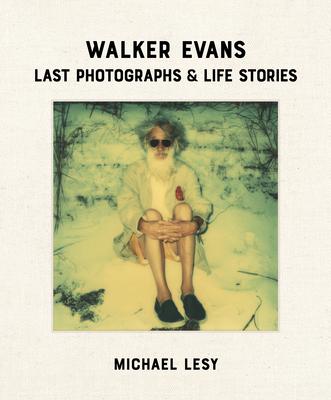
In this unconventional, lyrical biography, Lesy traces Evans's intimate, idiosyncratic relationships with men and women--the circle of friends who made Walker Evans who he was. "Wonder and scrutiny produced the portraits Walker made in his prime," Lesy writes. Evans's photographs of Agee, Berenice Abbott, Lady Caroline Blackwood, and Ben Shahn, among others, accompany Lesy's telling of Evans's life stories."Wonder and scrutiny, suffused with desire and dread, produced the portraits he made in his last years," Lesy notes. In the 1970s, Evans became enthralled with the Polaroid SX-70 and its colorful instant images, and he used it to take his last photographs--portraits of people, in extreme close up, and portraits of objects."Good clothes and good conversation, wit and erudition, originality and inventiveness, the charms of smart and pretty women--Walker took pleasure in being alive," Lesy writes. "He photographed objects as if they were people and people as if they were souls. All the while, he never forgot Blind Joe Death. The annihilations of the First War, the extinctions of the epidemic that followed it, the pyres and the pits--these he never forgot. The still silence of his images was, to the very last, transcendental, and always he remembered the skull beneath the skin."
In this unconventional, lyrical biography, Lesy traces Evans's intimate, idiosyncratic relationships with men and women--the circle of friends who made Walker Evans who he was. "Wonder and scrutiny produced the portraits Walker made in his prime," Lesy writes. Evans's photographs of Agee, Berenice Abbott, Lady Caroline Blackwood, and Ben Shahn, among others, accompany Lesy's telling of Evans's life stories."Wonder and scrutiny, suffused with desire and dread, produced the portraits he made in his last years," Lesy notes. In the 1970s, Evans became enthralled with the Polaroid SX-70 and its colorful instant images, and he used it to take his last photographs--portraits of people, in extreme close up, and portraits of objects."Good clothes and good conversation, wit and erudition, originality and inventiveness, the charms of smart and pretty women--Walker took pleasure in being alive," Lesy writes. "He photographed objects as if they were people and people as if they were souls. All the while, he never forgot Blind Joe Death. The annihilations of the First War, the extinctions of the epidemic that followed it, the pyres and the pits--these he never forgot. The still silence of his images was, to the very last, transcendental, and always he remembered the skull beneath the skin."
Hardcover
$45.00